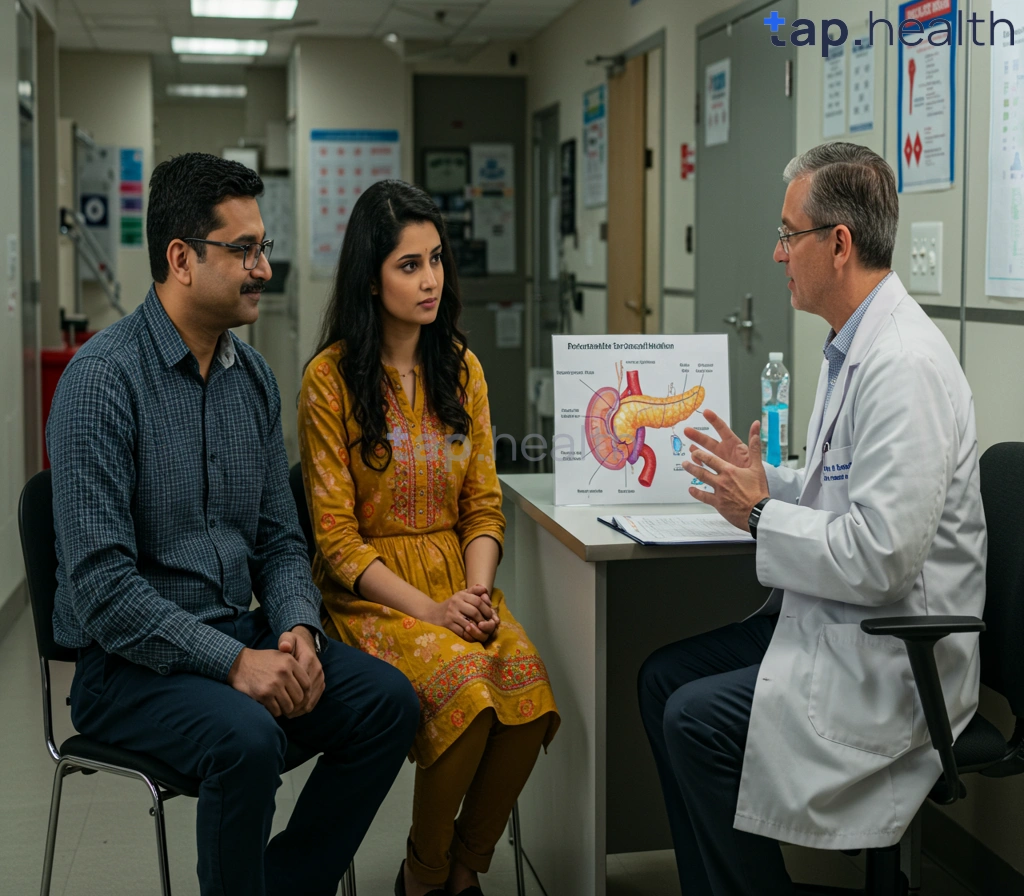Table of Contents
- Revolutionizing Thyroid Treatment: Endocrinology’s Latest Advances
- Diabetes & Metabolism: Nutritional Strategies for Thyroid Health
- Understanding Thyroid Function: A Guide to Endocrinology Insights
- Thyroid Research Breakthroughs: Impact on Diabetes Management
- Metabolic Syndrome & Thyroid Disorders: Nutrition’s Crucial Role
- Frequently Asked Questions
- References
Are you fascinated by the intricate workings of the endocrine system and its impact on overall health? Then you’ve come to the right place! This blog, dedicated to Advancing Thyroid Research: Endocrinology, Diabetes, Metabolism & Nutrition Insights, delves into the latest discoveries and advancements in understanding thyroid function and its interconnectedness with diabetes, metabolism, and nutrition. We’ll explore groundbreaking research, practical applications, and expert perspectives to help you stay informed on this vital area of healthcare. Get ready to unravel the complexities of hormonal balance and its profound influence on your well-being!
Revolutionizing Thyroid Treatment: Endocrinology’s Latest Advances
Understanding the Thyroid-Metabolism Connection in Tropical Climates
The intricate relationship between thyroid function and metabolism is a significant area of ongoing research, particularly relevant to populations in India and other tropical countries. Disruptions in thyroid hormone production can significantly impact metabolic processes, leading to conditions like hypothyroidism and hyperthyroidism. These imbalances can exacerbate existing health challenges, especially in regions where nutritional deficiencies are prevalent. Early diagnosis and effective management are crucial for improving patient outcomes.
Advances in Endocrinology and Diabetes Management
Recent advancements in endocrinology are revolutionizing thyroid treatment. Improved diagnostic tools allow for earlier and more accurate detection of thyroid disorders. Furthermore, personalized treatment plans, tailored to individual patient needs and metabolic profiles, are becoming increasingly common. This is particularly important considering that up to 80% of Type 2 diabetes cases can be delayed or prevented through lifestyle changes. Lifestyle modifications, including dietary adjustments and increased physical activity, play a vital role in managing both thyroid disorders and diabetes, especially within the context of Indian and tropical diets.
Actionable Steps for Improved Thyroid Health
For individuals residing in India and tropical regions, incorporating these strategies can significantly improve thyroid health and overall well-being: Prioritize a balanced diet rich in iodine and essential nutrients. To learn more about specific foods that can support thyroid function, check out our blog on Top Foods to Boost Thyroid Function Naturally. Consult an endocrinologist for regular check-ups and personalized treatment plans. Engage in regular physical activity tailored to your individual health needs and climatic conditions. By actively managing thyroid health and adopting a healthy lifestyle, individuals can significantly reduce their risk of developing complications and improve their quality of life. Remember that maintaining the right balance of Vitamins and Minerals Essential for Thyroid Health is also crucial.
Diabetes & Metabolism: Nutritional Strategies for Thyroid Health
Maintaining optimal thyroid function is crucial, especially in the context of diabetes, a prevalent concern in India and other tropical countries. A significant portion of the global diabetic population, 61% of those aged 20-64 years and 39% aged 65+ years, according to the International Diabetes Federation Atlas, highlights the urgency of understanding the interplay between these conditions. This is particularly relevant considering the rising prevalence of diabetes within these regions. As we age, managing diabetes becomes increasingly complex, as detailed in our blog on Managing Diabetes as You Age: Challenges and Solutions.
Understanding the Thyroid-Diabetes Connection
Thyroid hormones regulate metabolism, impacting how the body processes glucose. Hypothyroidism (underactive thyroid) can lead to weight gain, fatigue, and insulin resistance, increasing the risk of type 2 diabetes. Conversely, hyperthyroidism (overactive thyroid) can cause weight loss and increased blood sugar levels. Therefore, nutritional strategies that support thyroid health are essential for managing diabetes effectively, especially in high-risk populations.
Dietary Recommendations for Thyroid & Diabetes Management
A balanced diet rich in iodine, selenium, and zinc is crucial. Iodine, vital for thyroid hormone production, can be obtained from iodized salt and seafood. Selenium, an antioxidant supporting thyroid function, is found in Brazil nuts, eggs, and fish. Zinc, which plays a role in hormone metabolism, is abundant in legumes, nuts, and seeds. Furthermore, focusing on whole grains, lean proteins, and plenty of fruits and vegetables helps regulate blood sugar levels and overall metabolic health. Incorporating foods low in saturated and trans fats is also important for both thyroid and cardiovascular health. For specific meal ideas to support thyroid health and hormonal balance, check out our blog on Thyroid-Supporting Meals for Hormonal Balance.
Actionable Steps for Improved Health
Consulting a doctor or registered dietitian is crucial for personalized dietary guidance. They can assess individual needs and create a tailored plan considering existing health conditions and cultural dietary preferences prevalent in Indian and tropical countries. This targeted approach is key to effectively managing both thyroid health and diabetes in these regions.
Understanding Thyroid Function: A Guide to Endocrinology Insights
The Interplay of Thyroid and Metabolism in Tropical Climates
Thyroid disorders significantly impact metabolism, a crucial factor influencing health outcomes, especially in tropical climates where environmental factors can further complicate these conditions. Understanding thyroid function is paramount, particularly given the high prevalence of metabolic diseases in regions like India. Effective management requires a holistic approach, considering both endocrinology and nutritional aspects. For example, the high incidence of hypertension among individuals with diabetes in India, as highlighted by the International Diabetes Federation (IDF), underscores the interconnectedness of these metabolic issues. This interconnection necessitates a comprehensive approach to diagnosis and treatment.
Nutritional Considerations and Thyroid Health in India
Dietary habits play a crucial role in thyroid health. In India, and other tropical countries, specific nutritional deficiencies can exacerbate thyroid problems. Ensuring adequate iodine intake is vital, given its role in thyroid hormone production. Furthermore, the balance of other micronutrients is also critical for optimal thyroid function. Addressing potential deficiencies through diet modification or supplementation, under the guidance of a healthcare professional, is crucial. For more information on iodine’s role, read our article on The Role of Iodine in Thyroid Health: Foods You Must Include. Additionally, be mindful of your sugar intake, as discussed in The Impact of Sugar on Thyroid Health: How to Cut Back.
Seeking Expert Medical Advice
Given the complex interplay of factors influencing thyroid health, particularly in India and other tropical regions, seeking expert advice from an endocrinologist is essential. Early diagnosis and personalized management plans are key to improving patient outcomes and managing the often-coexisting conditions like diabetes and hypertension. Don’t hesitate to consult a specialist for personalized guidance to support your thyroid health.
Thyroid Research Breakthroughs: Impact on Diabetes Management
Understanding the Thyroid-Diabetes Connection in Tropical Climates
Recent breakthroughs in thyroid research are significantly impacting diabetes management, particularly crucial in Indian and tropical countries where both conditions are prevalent. The intricate relationship between thyroid function and glucose metabolism is increasingly understood. Hypothyroidism, or underactive thyroid, can mask symptoms of diabetes, leading to delayed diagnosis and potentially worsening complications. Conversely, poorly managed diabetes can negatively impact thyroid function. This complex interplay underscores the need for comprehensive screening and integrated management strategies.
The Kidney Connection: A Critical Consideration
The impact extends beyond simple glucose control. Diabetes increases the risk of kidney disease, with nearly 30% of individuals developing diabetic nephropathy. This highlights the importance of early detection and proactive management of both conditions. Effective thyroid hormone replacement therapy in those with hypothyroidism can improve overall metabolic health and potentially mitigate the risk of diabetic complications, including kidney damage. This is especially vital in regions with limited access to advanced healthcare, where early intervention is paramount.
Actionable Steps for Improved Health Outcomes
For individuals in India and other tropical countries, regular checkups including thyroid function tests and blood glucose monitoring are essential. Early diagnosis and appropriate management of both thyroid disorders and diabetes are crucial for preventing severe complications. For insights into how technology is improving diabetes management, see How Can New Technological Advances Improve Diabetes Lifestyle?. Consulting an endocrinologist specializing in diabetes and thyroid health will ensure personalized care tailored to your specific needs and regional context. This proactive approach offers the best chance for a healthier, longer life. Understanding the impact of diet is also crucial; learn more about the connection between dairy and thyroid disorders in Dairy and Thyroid Disorders: What Science Says.
Metabolic Syndrome & Thyroid Disorders: Nutrition’s Crucial Role
The Intertwined Fate of Metabolism, Thyroid Health, and Diet in Tropical Climates
The delicate balance of metabolism is profoundly impacted by thyroid function, and this connection is particularly significant in hot and humid climates prevalent across India and other tropical regions. Disruptions in thyroid hormone production can directly lead to metabolic syndrome, a cluster of conditions including high blood sugar, excess abdominal fat, and high blood pressure. This increases the risk of developing serious health problems like type 2 diabetes and cardiovascular disease. A study highlighted the alarming statistic that daily consumption of sugary beverages raises diabetes risk by 26%, emphasizing the critical role of nutrition in managing these interconnected issues.
Nutritional Strategies for Thyroid and Metabolic Health in India and Tropical Countries
Maintaining a balanced diet rich in fruits, vegetables, and lean proteins is crucial for both thyroid and metabolic health. In tropical regions, access to fresh produce is often abundant, offering an opportunity to incorporate nutrient-dense foods like leafy greens, citrus fruits, and spices known for their anti-inflammatory properties. Minimizing processed foods, sugary drinks, and refined carbohydrates is paramount. These contribute to weight gain, insulin resistance, and further complicate thyroid function. Consider incorporating traditional Indian dietary practices that emphasize whole grains, legumes, and a variety of spices, which can support healthy metabolism and thyroid function. For more information on how nutrition can prevent chronic diseases like these, see our article on How Does Nutrition Play a Role in Preventing Chronic Diseases?.
Empowering Individuals Through Nutritional Awareness
Understanding the intricate relationship between thyroid health, metabolism, and nutrition is key to preventing and managing related disorders. By making informed food choices and adopting a healthy lifestyle, individuals in India and other tropical countries can significantly reduce their risk of developing metabolic syndrome and its associated complications. Seek guidance from qualified healthcare professionals and registered dietitians to create a personalized nutrition plan that suits your individual needs and addresses any existing health conditions. Prioritizing your health through mindful nutrition is a powerful step towards a healthier and more vibrant future. It’s also important to consider the role of diet in preventing other serious conditions; for example, read our piece on The Role of Diet in Preventing and Managing Stroke – Tap Health to learn more.
Frequently Asked Questions on Thyroid Research
Q1. How do thyroid disorders affect metabolism, especially in tropical climates like India?
Thyroid disorders significantly impact metabolism. In tropical climates like India, these impacts can be amplified, often worsening conditions like diabetes. This is because of factors like increased heat and humidity, which can already stress the body’s metabolic processes.
Q2. What are the latest advancements in thyroid care?
Advances in endocrinology are transforming thyroid care. Improved diagnostic tools allow for earlier and more accurate detection, while personalized treatment plans cater to individual needs for better outcomes.
Q3. What is the importance of early diagnosis and treatment for thyroid disorders?
Early diagnosis is crucial in preventing serious complications associated with thyroid disorders. Prompt treatment helps control symptoms and minimize the long-term effects on overall health and well-being.
Q4. What lifestyle changes can help manage thyroid disorders and related conditions like diabetes?
A balanced diet rich in iodine, selenium, and zinc is essential. Regular exercise and reducing processed foods and sugary drinks are also vital. Consulting a registered dietitian and endocrinologist for personalized guidance is highly recommended.
Q5. What role do nutrition and dietary adjustments play in managing thyroid health?
Nutritional strategies are key to managing thyroid disorders. Addressing nutritional deficiencies, focusing on a balanced diet, and minimizing processed foods and sugary drinks are critical for overall metabolic health. Individualized dietary plans are beneficial.
References
- A Practical Guide to Integrated Type 2 Diabetes Care: https://www.hse.ie/eng/services/list/2/primarycare/east-coast-diabetes-service/management-of-type-2-diabetes/diabetes-and-pregnancy/icgp-guide-to-integrated-type-2.pdf
- Electronic Health Records-Based Data-Driven Diabetes Knowledge Unveiling and Risk Prognosis : https://arxiv.org/pdf/2412.03961





